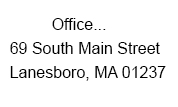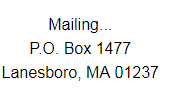Tips For First-Time Home Buyer's
Be picky, but don’t be unrealistic. There is no perfect home.
Do your homework before you start looking. Decide specifically what features you want in a home and which are most important to you.
Get your finances in order. Review your credit report and be sure you have enough money to cover your down payment and your closing costs.
Don’t wait to get a loan. Talk to a lender and get pre-qualified for a mortgage before you start looking.
Don’t ask too many people for opinions. It will drive you crazy. Select one or two people to turn to if you feel you need a second opinion.
Decide when you could move. When is your lease up? Are you allowed to sublet? How tight is the rental market in your area?
Think long-term. Are you looking for a starter house with the idea of moving up in a few years or do you hope to stay in this home longer? This decision may dictate what type of home you’ll buy as well as the type of mortgage terms that suit you best.
Don’t let yourself be “house poor”. If you max yourself out to buy the biggest home you can afford, you’ll have no money left for maintenance or decoration or to save money for other financial goals.
Get help. Consider hiring a REALTOR® as a buyer’s representative. Unlike a listing agent, whose first duty is to the seller, a buyer’s representative is working only for you. And often, buyer’s reps are paid out of the seller’s commission payment.
Steps To Prepare For Home Ownership
Decide how much home you can afford. Generally, you can afford a home equal in value to between two and three times your gross income.
Develop a wish list of what you’d like your home to have. Then prioritize the features on your list.
Select three or four neighborhoods you’d like to live in. Consider items such as schools, recreational facilities, area expansion plans, and safety.
Determine if you have enough saved to cover your down payment and closing costs.
Get your credit in order. Obtain a copy of your credit report.
Determine how large a mortgage you can qualify for. Also explore different loans options and decide what’s best for you.
Organize all the documentation a lender will need to pre-approve you for a loan.
Do research to determine if you qualify for any special mortgage or down payment-assistance programs.
Calculate the costs of home ownership, including property taxes, insurance, maintenance, and association fees, if applicable.
Find an experienced REALTOR® who can help you through the process.
Reasons To Own Your Own Home
Tax breaks. The U.S. Tax Code lets you deduct the interest you pay on your mortgage, property taxes you pay, and some of the costs involved in buying your home.
Property gains and appreciation.
Equity. Money paid for rent is money that you’ll never see again, but mortgage payments let you build equity ownership interest in your home.
Savings. Building equity in your home is a ready-made savings plan.
Predictability. Unlike rent, your mortgage payments don’t go up over the years so your housing costs may actually decline as you own the home longer. However, keep in mind that property taxes and insurance costs will rise.
Freedom. The home is yours. You can decorate any way you want and be able to benefit from your investment for as long as you own the home.
Stability. Remaining in one neighborhood for several years gives you a chance to participate in community activities, lets you and your family establish lasting friendships, and offers your children the benefit of educational continuity.
Common First-Time Home Buyer Mistakes
They don’t ask enough questions of their lender and miss out on the best deal.
They don’t act quickly enough to make a decision and someone else buys the house.
They don’t find the right real estate professional who is willing to help you through the home buying process.
They don’t do enough to make their offer look good to a seller.
They don’t think about resale before they buy. The average first-time buyer only stays in a home for four years.
Tips For Buying In A Tight Market
Increase your chances of getting your dream house instead of losing it to another buyer, with these easy steps:
Get pre-qualified for a mortgage. You’ll be able to make a firm commitment to buy and make your offer more desirable to the seller.
Stay in close touch with your real estate sales associate to find out first about new listings that come on the market. And be ready to go see a house as soon as it goes on the market.
Scout out new listings yourself. Look at Internet sites, newspaper ads, and drive by the neighborhood frequently. Maybe you’ll see a brand-new “for sale” sign before anyone else.
Be ready to make a decision. Spend lots of time in advance deciding what you must have so you won’t be unsure when you have the chance to make an offer.
Bid competitively. You may not want to start out offering the absolute highest price you can afford, but don’t try to go too low to get a deal. In a tight market, you’ll lose out.
Keep contingencies to a minimum. Restrictions such as needing to sell your home before you move or wanting to delay the closing until a certain date can make your offer unappealing. In a tight market, you’ll probably be able to sell your house rapidly. Or talk to your lender about getting a bridge loan to cover both mortgages for a short period.
Don’t get caught in a buying frenzy. Just because there’s competition doesn’t mean you should just buy anything. And even though you want to make your offer attractive, don’t neglect inspections that help ensure that your house is sound.





